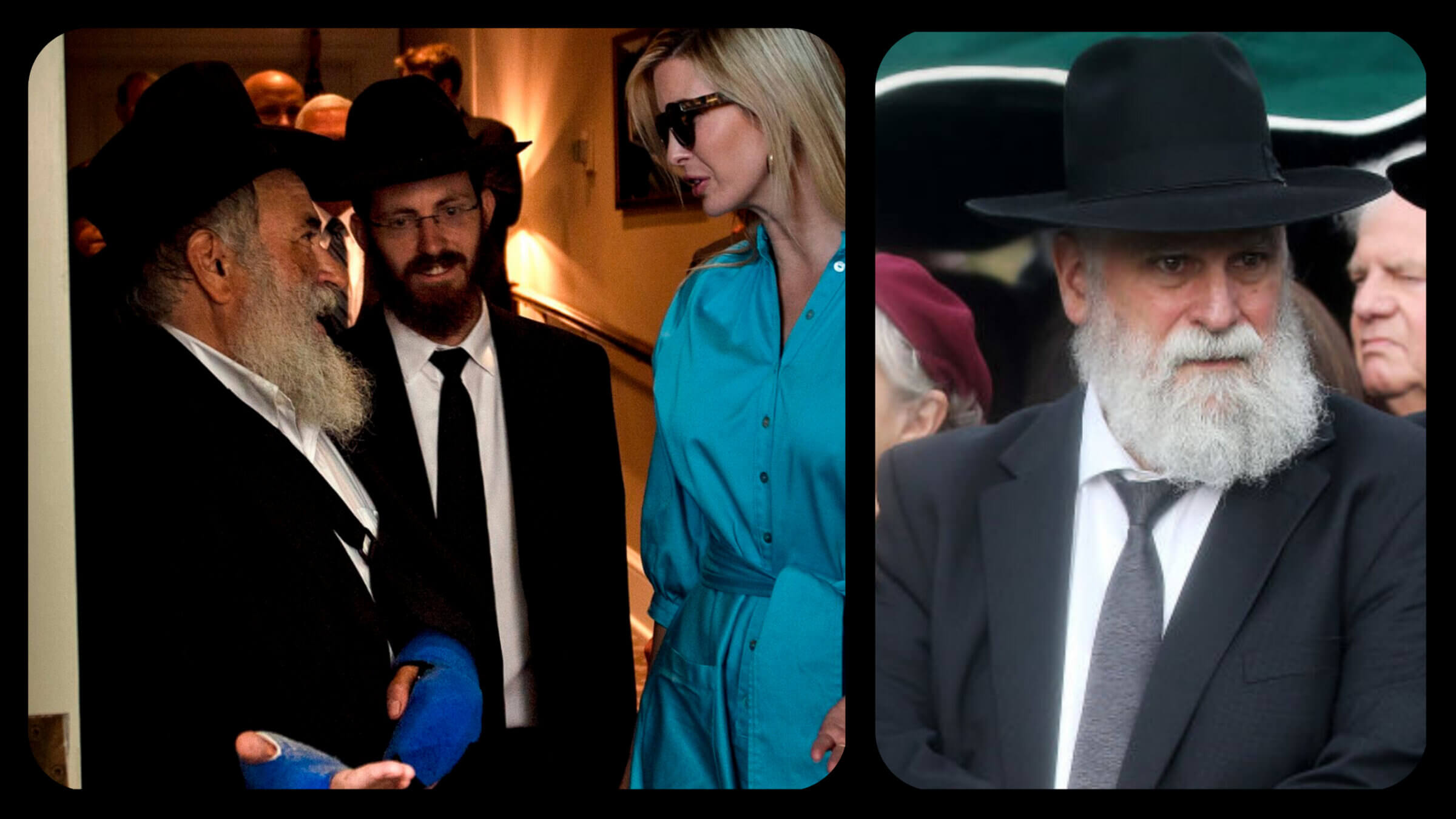Chabad of San Diego fires rabbi who refused oversight
Chabad’s regional leadership demanded Rabbi Mendel Goldstein’s resignation in July

Rabbi Mendel Goldstein (L, facing camera), was instructed to take the Chabad name off of his Poway synagogue by Rabbi Yonah Fradkin (R). Photo by Brendan Smialowski / AFP via Getty Images (L); Mario Tama/Getty Images (R)
The regional director of Chabad in San Diego has fired the rabbi of a troubled area synagogue — and chartered its upstart rival. But it’s not clear whether Chabad’s headquarters supports either action.
Rabbi Yonah Fradkin, who oversees more than a dozen San Diego Chabad institutions, informed Chabad of Poway director Rabbi Mendel Goldstein of the decision in a letter obtained by the Forward.
Citing ongoing noncooperation, Fradkin’s Sept. 14 letter read, “You are no longer allowed to use the name Chabad on the building and you are no longer entitled to call yourself an emissary of Chabad.”
Goldstein did not respond to a request for comment.
Chabad of Poway was the target of a mass shooting in April 2019 that killed a congregant and injured three others. The following July, Yisroel Goldstein — Mendel’s father and the synagogue’s founder — pleaded guilty to using nonprofits associated with the synagogue in a multimillion-dollar fraud scheme.
In a separate letter to Chabad headquarters sent Sept. 14, Fradkin requested that the organization remove Goldstein from its list of emissaries.
As of Monday, however, Chabad of Poway remained listed on Chabad.org — the organization’s website — with Goldstein as director.
Chabad headquarters did not reply to a request for comment.
The new Chabad of North County Inland was started last year as Bais Betzalel in nearby Rancho Bernardo by former Poway congregants and officially recognized by Fradkin this month. It is not currently listed on Chabad.org, but its co-director said headquarters had approved their charter.
The decision to expel Goldstein comes two months after Fradkin, who in 1976 became the first Chabad emissary to open a synagogue in the San Diego area, unsuccessfully demanded his resignation.
Mendel Goldstein, who was not a subject of the fraud investigation, inherited the pulpit from his father, but complaints persisted about a lack of transparency at the synagogue under his leadership. A volunteer board that joined to stabilize the synagogue’s finances stepped down a year later.
Fradkin, who is joined by seven other rabbis on the Vaad, or council, of San Diego Chabad, wanted to install a senior shliach, or emissary, on an interim basis to improve relations with the community. Goldstein, writing to Chabad headquarters, said the Vaad was using an indefinite demotion to railroad him out of a job.
Fradkin could not be reached for comment.
Meanwhile, two former members, Rabbi Yehuda Trestman and his wife, Debra, started an unofficial Chabad-Lubavitch congregation in their backyard.
An announcement from Fradkin to the community that appeared in the September issue of the San Diego Jewish Journal granted the Trestmans’ synagogue official status.
“For the last two years the community has asked us to remedy the situation,” Fradkin wrote. “We have heard the community.”
In an interview, Debra Trestman thanked Fradkin and called the recognition of the new synagogue a “tremendous honor.”
“We plan on being the hallmark — being completely transparent, being completely open, and having our members help us with our decisions,” Trestman said.
She declined to comment on Chabad headquarters’ action on her former synagogue, but said national leadership had facilitated the creation of Bais Betzelel’s website and that she expected to see the synagogue in the Chabad directory soon.
Chabad occasionally does expel rabbis from the movement. Yisroel Goldstein, who was eventually sentenced to 14 months in federal prison, was a recent example.
Typically, regional leadership has broad authority over its member institutions with little oversight or involvement from headquarters, which is located in Brooklyn and has well over 1,000 Chabad institutions under its umbrella.























